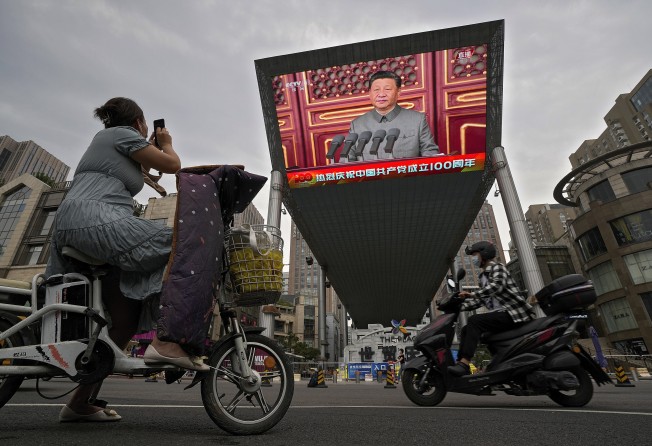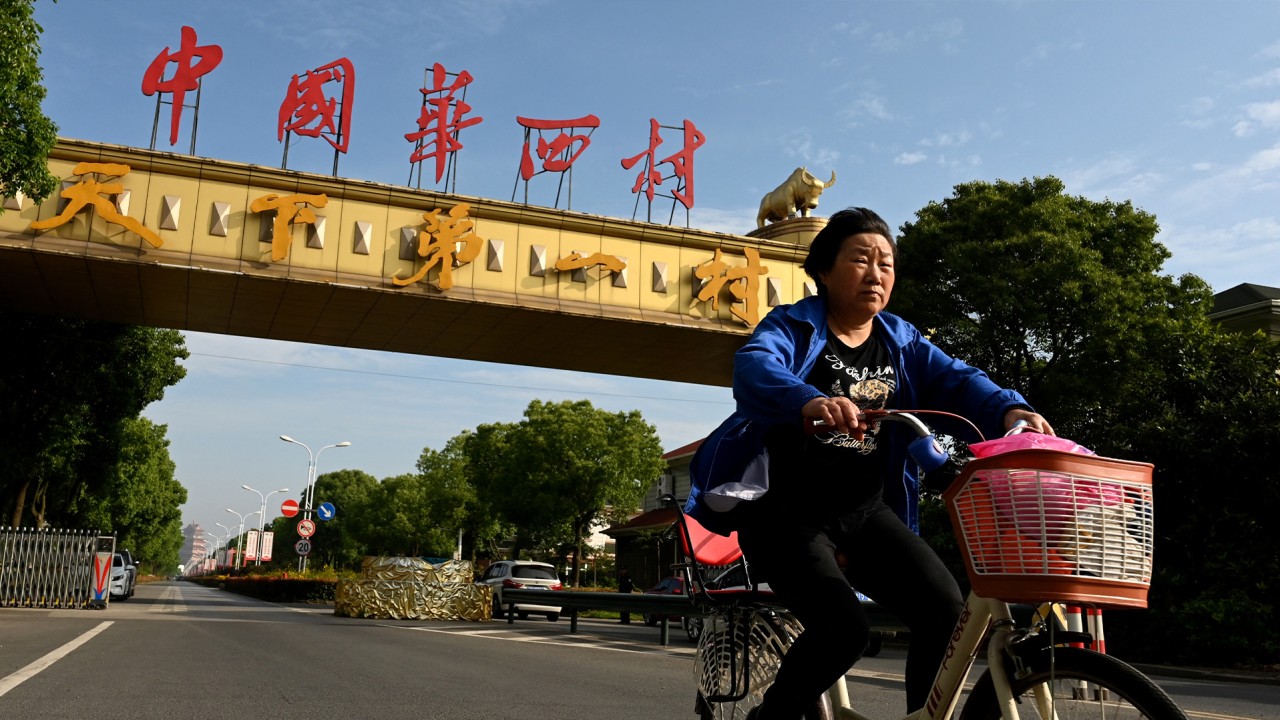Why securing middle-class prosperity is vital for leaders in China, and the US
- For the Communist Party, achieving ‘common prosperity’ means repairing the fallout from its economic success: endemic corruption and extreme inequality
- For Biden’s Democrats, ensuring prosperity for all could secure election success in 2022

In most countries, the principle of “common prosperity for all” would be as close to a political cliché as you could get. What more could a modern democratic leader possibly promise?
But for China, and particularly the Communist Party, last week’s call for gongtong fuyu carries a distinct significance.
It harks back to the party’s egalitarian origins and the vision championed by Mao Zedong after the party captured power in 1949. It alludes to the social and political contract engineered by Deng Xiaoping’s leadership as it encouraged people to get rich.
It reflects the party’s abiding anxiety to bolster its legitimacy – and legacy – in the absence of a fully-fledged democratic mandate.
Most of all, it reflects anxiety that the party should not become a victim of its success. Yes, it has lifted more people out of abject poverty than any government in history, and delivered basic living standards on a scale and speed most international economists thought impossible.
But the very speed of this success has come at a price: the endemic danger of corruption and an inequality so extreme it arouses fears of severe political instability.
This new political mantra pulls together threads that go back to Xi Jinping’s 2013 election as China’s president and his crackdown on corruption, which has swept up an estimated 2 million “tigers and flies” over the past eight years, including at least 120 high-level officials and billions of dollars in corrupt gains.
At the end of last year, Xinhua said the Central Commission for Discipline Inspection had “solved” 375,000 cases of “hedonism and extravagance” and punished over 320,000 people.
While corruption remains a problem, the most recent threads arise from increasing anxiety over inequality, which London School of Economics economist Branco Minanovic describes as China’s “Achilles’ heel”, pointing to the yawning threefold to fourfold income differences between urban and rural areas, and between rich and poor provinces.
The richest top 10 per cent in China account for 41.7 per cent of national income, according to the World Inequality Database. The top 1 per cent accounts for 14 per cent – almost the same as the bottom 50 per cent at 14.4 per cent.
China is minting billionaires at an unprecedented rate, adding more than 250 last year alone. The Hurun Global Rich List 2021 says China boasts 1,058 billionaires – 50 per cent more than America’s 696 – when around 600 million Chinese people live on less than 1,000 yuan (US$132) a month.
This wealth explosion is largely due to private enterprises, which by 2000, accounted for an estimated 66 per cent of China’s economy and 80 per cent of its growth, said Dr Lee Jones at the Queen Mary University of London in a January 2020 Transnational Institute report.
China has 135 companies in the latest Global Fortune 500 list – more than America’s 122 – and its corporate elite has significant clout outside China as well as inside it.
But Dr Jones raises an important concern: “It is also unlikely that any private enterprise could have become a giant like Huawei, Alibaba or Xiaomi without party-state patronage.”
These tough-to-trace links between the astonishing private-sector growth and the Communist Party are a rising concern for the party, both as a source of potentially corrupt power in the party, and a potential threat to public support.
Bring these threads together, and the past year’s events form a clearer picture, beginning with the cancellation of Ant Group’s US$37 billion initial public offering, and subsequent investigations into Tencent Holding and Pinduoduo for “uncompetitive behaviour”, as well as other tech companies.
The recent pressure on Didi Chuxing to delay its US$4.4 billion listing provided insights into government thinking. While the Ministry of Transport insisted there should be upper limits to Didi’s commission rates, a People’s Daily article noted that ride-hailing should be a “quasi public service”. “It’s time for ride-hailing platforms to give up the fantasy of making high profits,” it said.
The government’s objectives became even clearer with the crackdown on China’s US$100 billion private education sector, which has ruthlessly exploited parental anxieties about the ferociously competitive annual gaokao, the university entrance exams.
“The top leaders do not believe private schools serve the greater good, said a Beijing-based education adviser. “Public education does.”
While these attacks have come as a shock to equity markets, knocking more than US$1 trillion off the markets, Xi would argue that he has been nothing if not consistent.
Back in 2012, he told the 18th Party Congress that people aspired to “better education, more stable jobs, more income, greater social security, better medical and health care, improved housing conditions, and a better environment”.
The “common prosperity” mantra sums this up succinctly: the party puts itself in jeopardy if it cuts its umbilical cord with China’s ordinary salaried middle classes. The uber-rich elite, despite their political power, do not have the spending power to drive domestic consumption as part of Xi’s “dual circulation” vision.
So they have to be cut down to size. In Xi’s words, the government will “regulate excessively high incomes and encourage high-income groups and enterprises to return more to society”.
There seems to be a striking similarity with the Biden administration’s plans. What are the American Families, American Jobs, and American Rescue Plans – costing about US$6 trillion – if not a bid to provide “common prosperity” to secure Democratic election success in 2022?
Perhaps Xi’s Communist Party and Biden’s Democrats have more in common than we think – or perhaps “common prosperity” is a “pumpkin pie” mantra to politics wherever you are in the world.
David Dodwell researches and writes about global, regional and Hong Kong challenges from a Hong Kong point of view

